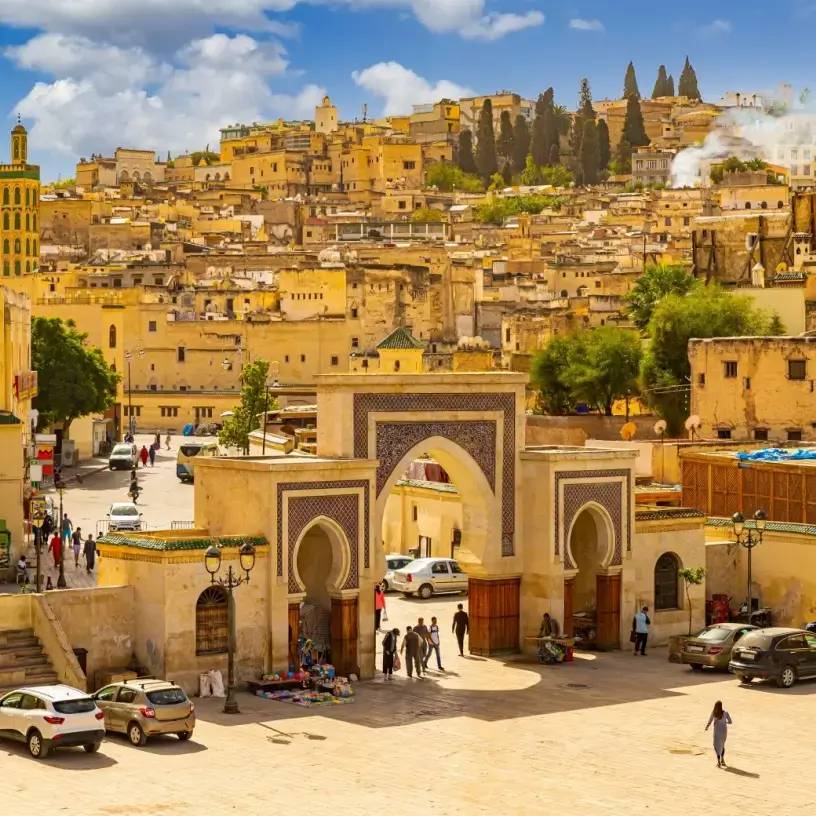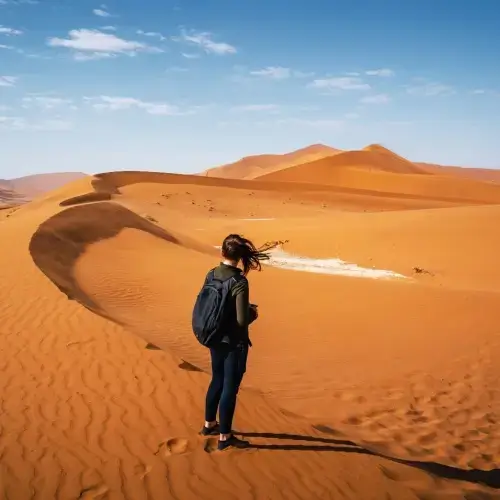Home / Compare Travel Insurance / Travel insurance for Afr…




Key takeaways
- Travel insurance may help cover unexpected medical costs while you’re overseas and provide 24/7 emergency assistance for your peace of mind.
- If you plan to trek on safari or go white water rafting on the Nile, be sure your policy covers these and any other adventure activities.
- Countries in Africa may have different travel warnings and safety concerns, so research your destination and plan ahead for your trip.
Expert tips for choosing the right travel insurance for Africa
If you plan to visit the African continent, check out our top tips from our Executive General Manager of General Insurance, Adrian Taylor.

Check your destination is covered
Whether you can take out travel insurance for some, or all, of your trip will depend on where you plan to visit. Many African countries are currently listed as ‘Do not travel’. This means you typically won’t be able to get a travel insurance policy for those destinations. Check Smartraveller or ask your insurer if you’re not sure whether you’ll be covered.
Consider comprehensive cover
To be protected with cancellation cover from the start, compare and purchase comprehensive travel insurance as soon as you make a booking and pay any deposits. That way, if you need to cancel before you depart, you may be compensated if you need to make a claim due to an unexpected event impacting your ability to travel.
Make sure luggage cover is included in your policy
Crime and violence are prominent issues in many African countries, and criminals will often target tourists and travellers, especially at airports and when using public transport.1 It is important to remain alert and not leave your belongings unsupervised, or your travel insurance claim for stolen luggage may be denied.
Do I need travel insurance for Africa?
Even though the decision to purchase travel insurance comes down to you, considering travel insurance is particularly important when planning to visit Africa. While Africa is a beautiful and exciting continent, many of its countries come with an increased degree of risk, making finding the right travel insurance for your trip important.
To understand a policy’s inclusions and limits, you should read the Product Disclosure Statement (PDS) before purchasing your travel insurance plan. Read the Target Market Determination (TMD) to check if a policy is suitable for your individual circumstances.
What should I consider including in my travel insurance policy for Africa?
Before travelling to Africa, it’s a good idea to purchase a travel insurance policy that can cover you against disruptions to your trip. Most comprehensive policies include cover for cancellations and travel delays and many also include cover for additional travel expenses.
Due to the high amount of crime and civil unrest in a number of African countries, travel insurance cover with a high level of medical coverage should be a priority. While quality medical facilities are available in some parts of Africa – most commonly in major African cities such as Cape Town, South Africa – the Department of Foreign Affairs and Trade (DFAT) notes that other parts may not have adequate medical care available.1 This means that you could be far from aid if you become sick or injured.
If you frequently travel to the continent, you might also want to consider purchasing an annual multi-trip policy, so you’re covered for multiple trips to Africa and other international locations over a year (up to the maximum trip length), rather than a single-trip policy.
Medical cover and 24/7 emergency assistance

Medical cover can protect you financially if you experience a medical emergency. Australia doesn’t have a Reciprocal Health Care Agreement with any African countries,2 so any medical bills you incur will be paid out-of-pocket.
However, most travel insurance providers offer emergency assistance along with cover for hospital bills and medical treatment. With emergency assistance, your insurer will help ensure you receive the medical care you need, even by sending out their own team or arranging for a medical evacuation or repatriation back home to Australia if required.
Luggage cover
Petty theft, car break-ins and violent crime are common in Africa, even in safer countries like Namibia.3 While you should take action to protect yourself and your belongings, travel insurance can cover the cost of repairing or replacing stolen and damaged belongings if you do get robbed.
Depending on your level of cover, your travel insurance may be able to reimburse your luggage, personal belongings, valuables, credit cards and travel documents up to certain limits.
Trip cancellations and travel delays
Many countries in Africa may have political conflict, crime or even just normal travel delays (like bad weather) that can disrupt travel plans. If parts or all of your trip is interrupted in some way, your international travel insurance policy may reimburse you for missed accommodation, flights or tours if you have trip cancellation and delay cover.
Adventure cover
Adventure awaits those who journey to Africa, from national parks and game reserves to white water rafting. However, not all sports and activities are covered by a standard travel insurance policy, and those that are vary between insurance providers. These types of activities may be covered by an adventure sports add-on.
It’s important to know what is and isn’t covered, as any incidents related to an excluded activity could mean your insurer might not pay for any insurance claims if you require medical assistance.
Is Africa safe?
For a continent as large as Africa, your level of safety can be dependent on where you wish to travel. Countries as such Seychelles, Zambia or South Africa are considered fairly safe to travel to, but there are also countries you should avoid.4
Check for travel advice on Smartraveller before booking a trip and taking out travel insurance cover, as many travel insurers won’t provide any cover for countries with a high degree of risk and a ‘Do Not Travel’ warning.
There’s also a risk of insect-borne diseases such as malaria, as well as food- or water-borne diseases such as cholera, hepatitis and typhoid. It’s recommended you speak to your medical practitioner about any vaccinations you may need and general advice for avoiding sickness overseas.
What is excluded from travel insurance for Africa?
Travel insurance companies won’t cover everything. While the exact exclusions will differ based on a policy’s PDS, the following events are generally not covered:
- War, terrorism and civil conflict. Several African countries remain highly volatile and may be at war, facing civil war or unrest, or suffering from terrorism. Due to the high risk, most insurers will not pay claims based on these events, though some may cover any related medical expenses.
- Unattended luggage. If you leave your belongings unsupervised in public or forget to lock the doors to your hotel, you typically won’t be able to make a claim for the cost of replacing damaged or stolen belongings.
- Pre-existing medical conditions. Those with certain pre-existing medical conditions might not be covered for claims related to those conditions. However, some insurers may allow you to disclose any pre-existing medical conditions or offer the option of paying extra for coverage if you have a pre-existing medical condition, depending on your individual circumstances.
- Illegal activities or reckless behaviour. If you make a claim as a result of breaking the law or acting recklessly, your claim will typically be rejected.
- Failing to get vaccinated beforehand. Several preventable diseases are present across the African continent. Some insurers won’t cover your medical expenses if your illness has an available vaccination that you chose not to take.
Meet our travel insurance expert, Adrian Taylor
As a General Insurance expert with over 13 years’ experience in financial services, Adrian Taylor believes in educating customers about the importance of travel insurance so that anyone can kick back and make the most of their time away from home. While no one wants a disrupted holiday, a suitable travel insurance policy can provide a financial safety net for yourself, your belongings and your trip in case things go wrong.
Want to know more about travel insurance?
1 Smartraveller, Department of Foreign Affairs and Trade, Australian Government. South Africa. Current as of June 2025. Accessed June 2025.
2 Services Australia, Australian Government. About reciprocal health care agreements. Updated March 2022. Accessed June 2025.
3 Smartraveller, Department of Foreign Affairs and Trade, Australian Government. Namibia. Current as of June 2025. Accessed June 2025.
4 Smartraveller, Department of Foreign Affairs and Trade, Australian Government. Africa. Accessed June 2025.

